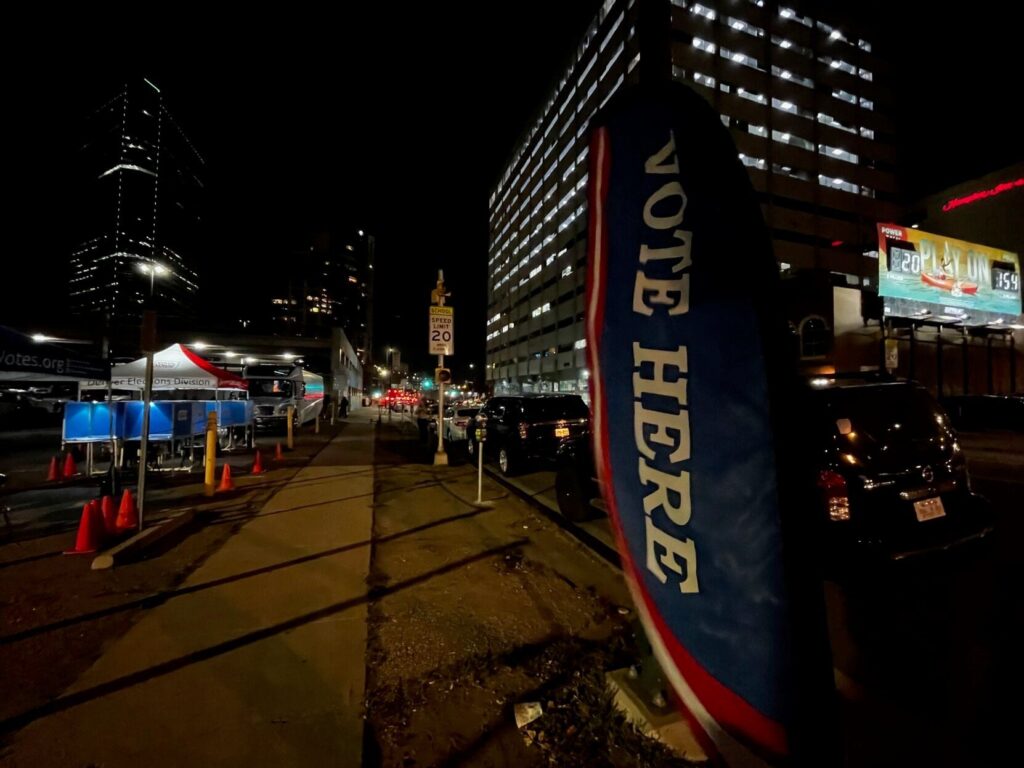Congressional delegation deals with comment deluge
Congressional offices in Colorado and across the nation have been flooded with emails, social media messages and calls that jammed phone lines. Hundreds of protesters flocked to town halls and congressional offices, some in strongly Republican districts, to voice their opposition to President Donald Trump’s Cabinet picks, plans to change or repeal Obamacare and refugee restrictions.
The goal of organizers of some of the efforts, according to a recent Associated Press story, is nothing short of complete resistance. It’s a strategy learned from the success of the tea party movement, which stymied President Barack Obama’s agenda through protests, door-to-door campaigns and online activism.
More frequent, greater urgency
Colorado’s Congressional offices have been busier than usual, according to those who responded to a request for comment and information by The Colorado Statesman and other reports.
Lynne Weil, communications director for U.S. Rep. Diana DeGette, D-Denver, said in an email that “Congresswoman DeGette’s constituents have contacted her Denver and (Washington,) D.C., offices with their concerns more frequently, and with greater urgency, ever since the election.”
“Constituent interest in all manner of issues has spiked. By far the matter that is most on their minds is the havoc that repealing the Affordable Care Act would wreak,” Weil continued. “Nearly 1,000 people attended a community forum on the ACA in Denver (Feb. 4) hosted by … DeGette, her largest such event by far. Attendance at previous community forums has ranged from about 50 to 100 people.”
Weil added calls to DeGette’s offices in Denver and D.C. had tripled, with roughly 50 percent of them about ACA repeal and the incoming email rate had doubled.
“Staff take in the information, tally the results and report them to the congresswoman on a regular basis,” Weil wrote. “Congresswoman DeGette is kept apprised of trending topics – where there’s a spike in contact from constituents – in real-time. And she often reviews incoming correspondence herself.”
Similarly, U.S. Rep. Ed Perlmutter, D-Golden, had seen a substantial increase in calls, email and letter correspondence, and event attendees, wrote Perlmutter’s communications director, Ashley Verville, in her email response.
“All constituent contact – emails, letters, calls, walk-ins, and event attendees – are logged by staff and included in a weekly report provided to Rep. Perlmutter,” she wrote.
Perlmutter’s Lakewood district office had 140 phone calls in November 2015, Verville continued, compared to 727 calls between November 2016 and Feb 8, 2017. Approximately 65 percent of those calls were related to Trump, the new administration and his policies, Verville added.
In Perlmutter’s D.C. office, 228 phone calls were received between November 2015 and January 2016. From November 2016 through Feb. 8, 2017, 1,105 calls were received and approximately 72 percent were related to Trump, the new administration and his policies, Verville continued.
Perlmutter’s “Government in the Grocery,” a recurring event where Perlmutter meets with constituents one-on-one at different grocery stores around his district, typically on Saturdays, had seen attendance swell from an average of 10-15 people, with a low of 5 in March 2016, to 120 people in January 2017, Verville’s email reported.
Republicans getting an earful, too
Kyle Huwa, U.S. Rep. Ken Buck’s spokesman, also said the offices of the Greeley Republican were busier.
“We have seen at least a doubling of calls to our office from comparable periods last year,” Huwa wrote. “We have multiple staff working at all times on communicating with constituents through phone, email, and voicemail. We record every message that comes into the office to include in our report to the congressman.”
“The big difference is that last year much of the feedback came from people who opposed President Obama’s actions, but this year much of the feedback comes from people who oppose President Trump’s actions,” Huwa added.
While no other Republican members of Colorado’s delegation responded to the Statesman’s request for comment and information, Denverite.com reported U.S. Sen. Cory Gardner, R-Yuma, had received tens of thousands of calls and emails and hundreds protested at his field offices. A petition was also circulated that called on Gardner to resign over his vote for Secretary of Education Betsy DeVos, the online news organization said.
When Gardner talked to CBS4 about the calls and emails that had inundated his office, he suggested many came from “paid protesters,” a comment that was met with a #notapaidprotestor hashtag from Coloradans who oppose Trump and his policies.
Gardner supports repealing Obamacare, and he had voted for all of Trump’s nominees through early February, including DeVos, when just one more Republican defection would have denied her nomination. People protested at Gardner’s offices over health care, before and after the DeVos vote.
U.S. Rep Mike Coffman, R-Aurora, garnered national headlines over claims he left a January town hall-like meeting at the Aurora Public Library earlier than the scheduled 90 minutes when hundreds of people – at times shouting over Coffman’s remarks – peppered him with questions about the future of Obamacare. Coffman’s staff said the library needed the meeting space, but one report said the library was willing to let Coffman remain as long as he wanted.











